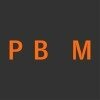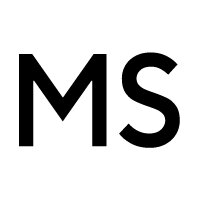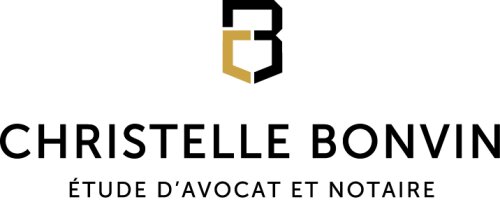Best Sanctions & Export Controls Lawyers in Switzerland
Share your needs with us, get contacted by law firms.
Free. Takes 2 min.
Or refine your search by selecting a city:
List of the best lawyers in Switzerland
About Sanctions & Export Controls Law in Switzerland
Sanctions and export controls are legal measures enacted to regulate the movement of goods, services, technology, and financial resources across Swiss borders. Switzerland, though not part of the European Union, frequently aligns its regulations with international standards and United Nations Security Council resolutions. The main objectives of sanctions and export controls in Switzerland are to help maintain peace and security, prevent the proliferation of weapons of mass destruction, combat terrorism, and uphold international law. These laws impose restrictions or prohibitions on trading with certain countries, organizations, or individuals, and regulate the export of specific products, technologies, and services.
Why You May Need a Lawyer
Navigating Swiss sanctions and export controls can be complex, especially for businesses involved in international trade or individuals dealing with cross-border transactions. You may need legal advice in situations such as:
- Unsure if your export activities require licenses or are subject to restrictions
- Facing investigations or enforcement actions by Swiss authorities
- Needing assistance with compliance programs or internal audits
- Finding yourself or your business inadvertently involved with sanctioned entities or restricted transactions
- Drafting or reviewing contracts to avoid inadvertent breaches of export control laws
- Acquiring or transferring technology that might be subject to dual-use regulations
- Handling the legal risks associated with foreign investments or international partnerships
A lawyer specializing in sanctions and export controls can help you understand your obligations, avoid severe penalties, ensure compliance with local and international regulations, and represent your interests in case of disputes or government actions.
Local Laws Overview
Sanctions and export controls in Switzerland are governed primarily by the Federal Act on the Implementation of International Sanctions (Embargo Act) and the Federal Act on the Control of Dual-Use Goods, Specific Military Goods, and Strategic Goods (Goods Control Act). Key authorities include the State Secretariat for Economic Affairs (SECO) and the Federal Customs Administration. Significant aspects of Swiss law in this area include:
- Comprehensive export licensing requirements for dual-use and military goods
- Adoption and enforcement of United Nations and, often, European Union sanctions lists
- Prohibition or severe restriction on business transactions with certain countries, organizations, and individuals
- Strict compliance obligations for Swiss banks and financial intermediaries
- Mandatory due diligence and reporting duties for potentially suspicious transactions
- Substantial penalties for non-compliance, including fines and criminal sanctions
Swiss companies and individuals involved in cross-border activity must routinely check sanction lists, apply for proper export permits, and maintain robust compliance procedures.
Frequently Asked Questions
What are sanctions and export controls?
Sanctions are legal measures that restrict or prohibit certain international transactions to achieve political or security objectives. Export controls regulate the export of goods, technology, and services, especially those that have military or dual-use (civilian and military) potential.
Do Swiss laws differ from those in the European Union?
Switzerland is not an EU member but often mirrors EU and United Nations sanctions. However, there can be differences, so it is crucial to check Swiss regulations specifically if you are operating from or through Switzerland.
Who is affected by Swiss sanctions and export controls?
Any individual or company in Switzerland, and Swiss citizens or entities abroad engaging in international trade, financial transactions, or technology transfers, may be subject to these laws.
How do I know if an export is controlled?
Check the control lists published by Swiss authorities, particularly SECO, and determine if your goods, software, or technology are listed. Legal advice can help clarify complex classifications.
What are dual-use goods?
Dual-use goods are items, technology, or software that can have both civilian and military applications. Export of these goods is regulated even if their intended use is non-military.
Can I do business with parties from sanctioned countries?
Generally, business relationships with parties from sanctioned countries are restricted or prohibited. Due diligence and regular checks of sanction lists are necessary to avoid violations.
What penalties exist for violating sanctions or export controls?
Violations may result in administrative or criminal penalties, including significant fines and potential imprisonment. Non-compliance can also lead to reputational damage and loss of business.
Do I always need an export license?
Not all exports require a license, but certain goods, technology, destinations, and end-users may trigger licensing requirements under Swiss law. When in doubt, seek legal guidance or consult SECO.
What should I do if I suspect a transaction is non-compliant?
Cease the activity, consult your legal advisor, and report your findings to the relevant Swiss authorities if necessary. Companies should have internal reporting protocols for these situations.
Are there compliance programs to help my business?
Yes, it is advisable for companies engaging in international transactions to implement internal compliance programs. These should include regular training, risk assessments, ongoing monitoring, and consultation with legal experts.
Additional Resources
To understand and comply with Swiss sanctions and export controls, consider these resources:
- State Secretariat for Economic Affairs (SECO): The main authority for export control and sanction lists
- Federal Customs Administration: Responsible for the implementation of border and trade controls
- Swiss Financial Market Supervisory Authority (FINMA): Provides guidelines for financial institutions on sanctions compliance
- Swiss law firms and compliance experts specializing in sanctions and export controls
- Chambers of commerce, which may offer training and informational seminars
- Swiss official government portals for updated information and legal texts
Next Steps
If you believe you need legal assistance regarding sanctions and export controls in Switzerland, take the following steps:
- Identify the specific issue, such as a planned export, a questionable transaction, or a compliance concern
- Gather relevant documents, such as contracts, correspondence, and product details
- Contact a lawyer or law firm with experience in Swiss sanctions and export controls
- Schedule a consultation to clearly explain your situation and seek advice on compliance or remedial actions
- Implement the recommended legal and compliance measures
- Stay informed about changes in Swiss and international sanctions and export control regulations
Expert legal guidance can help you avoid violations, protect your interests, and ensure your cross-border activities remain compliant with Swiss law.
Lawzana helps you find the best lawyers and law firms in Switzerland through a curated and pre-screened list of qualified legal professionals. Our platform offers rankings and detailed profiles of attorneys and law firms, allowing you to compare based on practice areas, including Sanctions & Export Controls, experience, and client feedback.
Each profile includes a description of the firm's areas of practice, client reviews, team members and partners, year of establishment, spoken languages, office locations, contact information, social media presence, and any published articles or resources. Most firms on our platform speak English and are experienced in both local and international legal matters.
Get a quote from top-rated law firms in Switzerland — quickly, securely, and without unnecessary hassle.
Disclaimer:
The information provided on this page is for general informational purposes only and does not constitute legal advice. While we strive to ensure the accuracy and relevance of the content, legal information may change over time, and interpretations of the law can vary. You should always consult with a qualified legal professional for advice specific to your situation.
We disclaim all liability for actions taken or not taken based on the content of this page. If you believe any information is incorrect or outdated, please contact us, and we will review and update it where appropriate.
Browse sanctions & export controls law firms by city in Switzerland
Refine your search by selecting a city.















